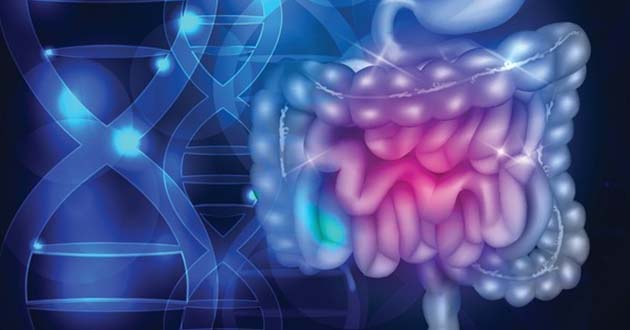Crohn’s disease is a type of inflammatory bowel disease. However, new research on Crohn’s disease is still needed to be done. Researchers are not sure how this disease begins, who is most likely to develop it, or how exactly it can be treated.
Despite the great development in medicine in the last three decades, a specific cure for Crohn’s disease is not yet available.
Disease most commonly occurs in the small intestine and colon. However, the disease can affects any part of the gastrointestinal tract, starting from the oral cavity to the anus. In addition, this disease can affect some parts of the gastrointestinal tract and skip other parts, although they are located nearby.
The range of severity of Crohn’s disease can range from mild to very serious. Symptoms also they can vary and can change over time. In some patients, this disease can lead to life-threatening symptoms and complications.
What Causes Crohn’s Disease?
Science have not yet officially confirmed what the specific cause of Crohn’s is exactly. However, it has been found that the following factors may influence whether this disease will develop like:
- immune system
- genetics
- environmental factors
Statistics show that about 20% of people with Crohn’s disease have close relatives (parents, child or brother / sister) who also suffer from this disease at some point in their lives.
Certain factors can affect the severity of symptoms:
- smoking
- age
- whether or not the rectum is affected by the disease
- time period of illness
Some patients with this disease are more likely to develop intestinal infections caused by bacteria, viruses, parasites and fungi. This can have a significant impact on them severity of symptoms and create complications.
Crohn’s disease and its treatments can affect the immune system, making these types of infections more serious in people with inflammatory bowel disease.
Candida-derived fungal infections are common in patients with Crohn’s disease and can adversely affect both the lungs and intestinal tract. It is important to get these infections timely diagnose and properly treat anti-fungal drugs to prevent further complications.
What are the symptoms of Crohn’s disease?
Symptoms of Crohn’s disease often develop gradually. Certain symptoms may become more serious over time.

Although possible, it is still a rare occurrence that the symptoms of Crohn’s disease are sudden and dramatic.
The earliest symptoms of Crohn’s disease may be:
- diarrhea
- stomach cramps
- blood in the stool
- fever
- fatigue
- loss of appetite
- weight loss
- feeling as your bowels are not empty after bowel emptying
- a sense of frequent need for bowel movements
- it is sometimes possible to confuse these symptoms with those of another medical condition, such as food poisoning, upset stomach or allergies. Therefore, you should definitely see your doctor if any of these symptoms persist for a long time. The symptoms of Crohn’s disease may become more serious as the disease progresses.
These symptoms can include:
- perianal fistula, which causes pain and discharge near the anus
- ulcers that can occur anywhere, from the mouth to the anus
- inflammation of joints and skin
- shortness of breath or decreased ability to exercise due to worsening of anemia symptoms
Early detection and diagnosis of Crohn’s disease can help you avoid potential serious complications and allow you to start early treatment.
Treatment of Crohn’s disease
Diet for people with this disease
A diet plan that works for one person with Crohn’s disease may not work for another person. This is because the disease can involve different areas of the gastrointestinal tract in different people.
It is important to find out what works best for you. This can be done by following yours symptoms as certain foods are added to or removed from your diet. Changes in diet and lifestyles can help you reduce the recurrence of symptoms and reduce their symptoms severity.
If you have Crohn’s disease, you may need to:
Adjust the fiber intake
Some people need a diet high in protein and fiber. For others, the presence of extra residue from fiber-rich foods such as fruits and vegetables can make it worse condition in the gastrointestinal tract. If this is the case, you may need to switch to low fiber diet.
Limit fat intake
Crohn’s disease can interfere with the body’s ability to break down and absorb fat. This excess fat will move from the small intestine to the large intestine. This can lead to diarrhea.
Limit milk intake
You may not have had lactose intolerance before, but your body may have difficulty digesting milk protein when you have this disease. Consuming dairy products can lead to stomach disorders, abdominal cramps and diarrhea in some people.
Drink plenty of water
Crohn’s disease can affect the body’s ability to absorb water from the digestive tract. This can lead to dehydration. The risk of dehydration is especially high if you have diarrhea or bleeding.
Consider alternative sources of vitamins and minerals
This disease can affect the ability of the intestine to properly absorb necessary nutrients from your food. In this case, careful intake of high-nutrient substances may not be a sufficient health measure. Talk to your doctor about the possible use of supplements of certain vitamins and / or minerals to find out if they are right for you
Symptom and treatment in Crohn’s disease
Treatment is not currently available for Crohn’s disease, but still symptoms can be manageable. Different types of therapies can reduce the severity and frequency of symptoms in patients. There are more than four classes of medicines used to treat this disease. First-line treatments include anti-inflammatory drugs. More advanced options include biological methods, which use the body’s immune system as a force to treat the disease.
Crohn’s disease and surgery
If the less invasive treatments and lifestyle changes that are mentioned above do not change or improve the symptoms in this disease, surgery may be the option. According to statistics, about 70% of patients with this disease will have to undergo surgery at some stage in their lives.
Some types of surgical interventions may include removal of damaged parts of the digestive tract and reconnecting to the healthy ones. To repair damaged tissue, manage scar tissue or treatment of deep infections, in addition to surgery, other procedures may be involved.
For more information, please call the Atlas General Hospital phone number: +381 11 785 88 88.
